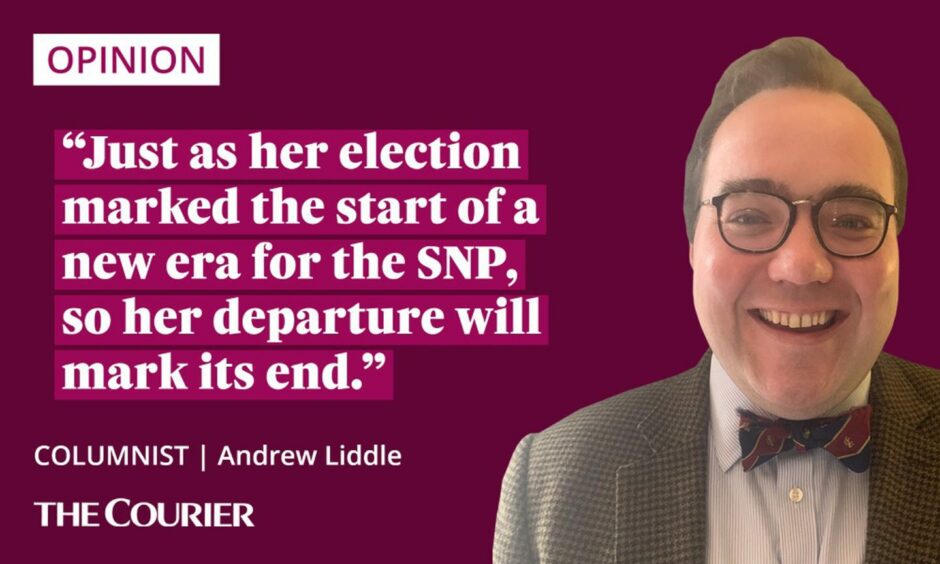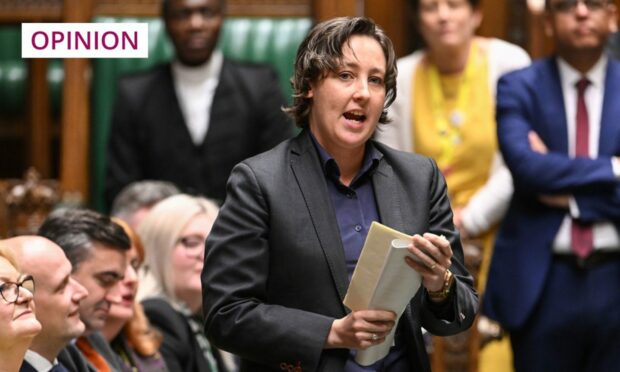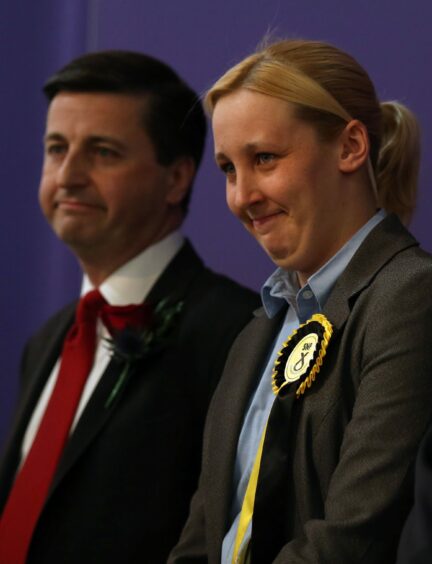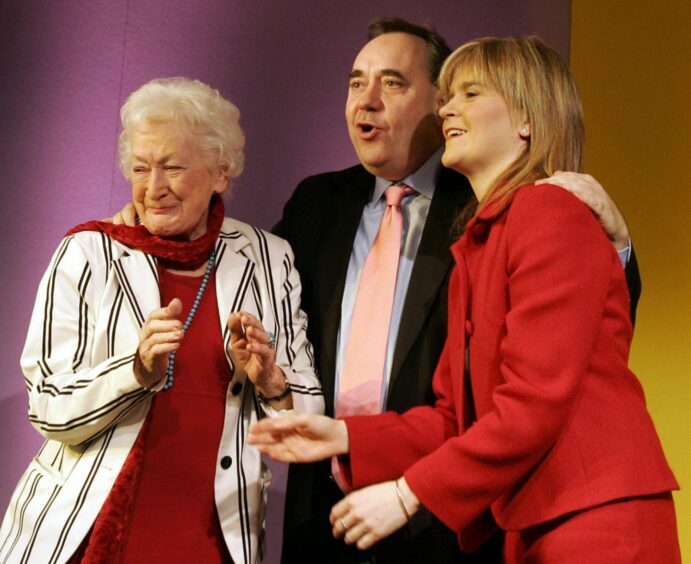Two incidents of note happened at the same time as Mhairi Black announced her decision to step down as an MP at the next election, citing Westminster’s “toxic culture”.
The first was a report of a bust up in the House of Commons between two SNP MPs, long-serving Western Isles member, Angus MacNeil, and the Nationalist’s Chief Whip, Brendan O’Hara.
The incident began with O’Hara confronting MacNeil over his attendance – or lack thereof – in Westminster.
An eyewitness suggested the incident closed with MacNeil repeatedly calling his colleague “a small wee man” before throwing a sheaf of letters in the air and storming off.
The following day, Stephen Flynn, the SNP group’s Westminster leader, announced MacNeil would be suspended for a week following the incident.
If there is a “toxic culture” at Westminster – and, like all workplaces, it undoubtedly has its issues – then this is surely an example of it.

Indeed, the SNP group at Westminster has been mired in scandal and back-stabbing for months, if not years.
A recent case in point was that of Patrick Grady, the SNP MP for Glasgow North, who was suspended for inappropriate advances towards a party staffer.
That case was so badly mishandled by the party that it effectively led to Ian Blackford’s downfall as SNP Westminster leader, as well as reports of SNP Westminster staff feeling unsafe.
If Black wants a toxic culture, she need look no further.
SNP has bigger problems than Mhairi Black’s departure
The second event of note at the time of her resignation was a new poll by Survation.
This – like many polls before it in recent months – showed a growing resurgence of Scottish Labour at the expense of the SNP.
According to the survey, Sir Keir Starmer’s party are now just four points behind the Nationalists in Westminster voting intention, although other polls have the gap even narrower.
Were such a result to be replicated at a General Election, it would be highly likely Black would lose her seat of Paisley and Renfrewshire South.
Perhaps, it was not actually about Westminster’s “toxic culture” after all.
In recent weeks the SNP has seen six MPs confirm they will stand down at the General Election, with more announcements likely in the near future.
Some – such as the decision of Stewart Hosie, MP for Dundee East, to retire – can be explained away.
Hosie has served his constituency and party dutifully, if uninspiringly, for two decades and his parliamentary career has now reached a natural close.
Others, however, are in tighter, marginal seats, and are very much jumping before the electorate gives them a firm push.
The end of Mhairi Black’s political career seems, however, even more significant.
Mhairi Black a symbol of ascending SNP
Her election and her departure in many ways bookend an era of SNP electoral dominance that was sustained by identity rather than ideas.
And that is now coming to an end.
Her victory against Labour’s Douglas Alexander was one of the most astonishing moments of an astonishing General Election in 2015.
Here, a 20-year-old – still to complete her undergraduate degree – had defeated a former Cabinet Minister, with almost two decades political experience, defending a majority of more than 16,000.
Were it a question of who would make the better MP, there would have been no contest.
But the voters of Paisley and Renfrewshire South – as in Scotland more widely – were not interested in such bourgeois niceties.
This was the dawn of visceral tribalism and feel-good populism, and Mhairi Black’s victory exemplified it.
In the immediate aftermath of that election, she become a heroine of the Nationalist movement.
Only the late Winnie Ewing and, perhaps, the former First Minister Nicola Sturgeon, could rival her for the affection of members.
They were drawn not to her abilities or ideas or record, but her attitude, which was to treat the very stage she acted on with borderline contempt.
She railed against injustices – both real and imagined – and revelled in the solution to every problem being Scottish independence.
End of an era for Scottish politics
For a time, voters in Scotland loved it. This was what standing up for Scotland looked like, and it felt good.
They re-elected Black – and the SNP – in both 2017 and 2019, latterly with a majority of more than 10,000.
But now the voters are growing weary.
Perhaps it is that attention-seeking by using unparliamentary language is less amusing when you are struggling to heat your home or pay your mortgage.
Perhaps it is because they really do like Starmer and think he can – unlike the SNP – actually beat the Tories.
Either way, there is a Shakespearian synergy to the fact that, when Black departs at the next General Election, Alexander will be re-elected as a Labour MP, albeit this time for East Lothian.
That alone shows that just as her election marked the start of a new era for the SNP, so her departure will mark its end.














